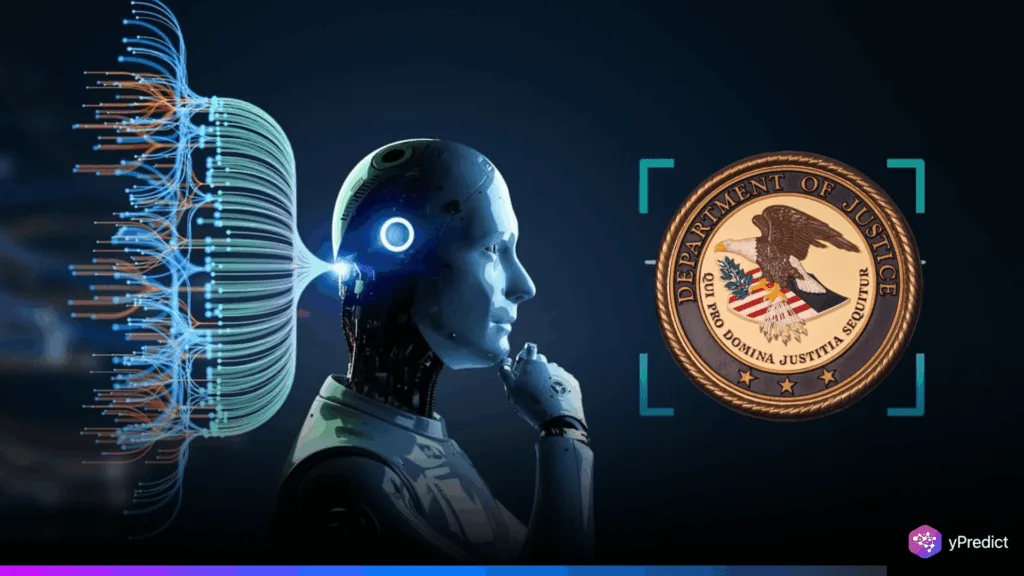
Anthropic, an AI startup, is raising concerns about possible consequences as the legal battle over Google’s dominance in online searches shifts toward the artificial intelligence industry. Anthropic claimed in a recent court filing that a proposal from the U.S. Department of Justice (DOJ) might discourage AI investments. Specifically, by requiring Google to alert the DOJ before entering into any AI-related agreements.
According to Anthropic, a Google-backed business, this policy would hinder rather than boost competition. Anthropic, supported by business associations like Engine Advocacy and TechNet, has urged the court to consider the broader implications on market diversity and innovation.
Will Oversight Rules Stall Tech Growth Momentum?
The DOJ’s attempt to limit what it sees as Google’s growing monopoly in the search and developing AI markets is at the center of the conflict. The Justice Department is asking the court to impose remedies that include sharing data with rivals, revealing AI investments beforehand, and potentially dismantling Google’s core assets, like the Chrome browser. According to Anthropic, which Google has backed with billions of dollars, these actions could deter tech collaborations.
Anthropic underlined that to grow and innovate, smaller AI businesses frequently need assistance from larger tech companies. It issued a warning, saying that requiring Google to notify the DOJ before taking such action could create serious obstacles. The government runs the risk of allowing only the largest businesses, like Google, to thrive. Instead, the startup claims that the proposed regulation would increase rather than decrease Google’s monopoly power.
Can Industry Alliances Shield AI from Setbacks?
Engine Advocacy and TechNet supported Anthropic’s stance in a joint filing. They claimed that rather than promoting market diversification, the DOJ’s proposed limitations on AI investments might unintentionally cause market consolidation.
According to these tech lobbying groups, Google’s investments in businesses such as Anthropic have played a significant role in the development of alternative AI platforms. They claim that a greater range of resources and services are available to users and application developers with this type of support.
Additionally, as part of the DOJ’s solutions, Google will no longer pay Apple and other device manufacturers billions of dollars to maintain its position as the default search engine. According to filings, these arrangements have been a linchpin in sustaining the Google monopoly, and any reform must address both current and emerging market dynamics.
Regulation May Reshape AI Investments and Growth
As U.S. District Judge Amit Mehta considers the next steps in this antitrust case, the outcome could significantly alter the landscape of AI regulation. Companies such as Anthropic are concerned that strategic tech partnerships will diminish if the DOJ’s proposals are implemented, making it more difficult for smaller players to thrive. A change like that might undo the gains made in the AI ecosystem’s diversification.
Although the DOJ is pushing, many in the tech industry support a more measured strategy that strikes a balance between innovation and oversight. They caution that overly strict regulations could lower investment activity while providing dominant players with unforeseen benefits. Stakeholders like Anthropic urge the court to take into account long-term effects for AI investments rather than just immediate legal solutions.
Can Courts Protect AI Innovation Paths?
The court’s ultimate ruling will be a determining factor for AI investments in the United States going forward. It will be crucial to see how regulators address Anthropic’s concerns because the line between encouraging innovation and avoiding monopoly power is hovering. It is unclear whether the current scrutiny of tech partnerships will result in significant change or inadvertent stagnation.







